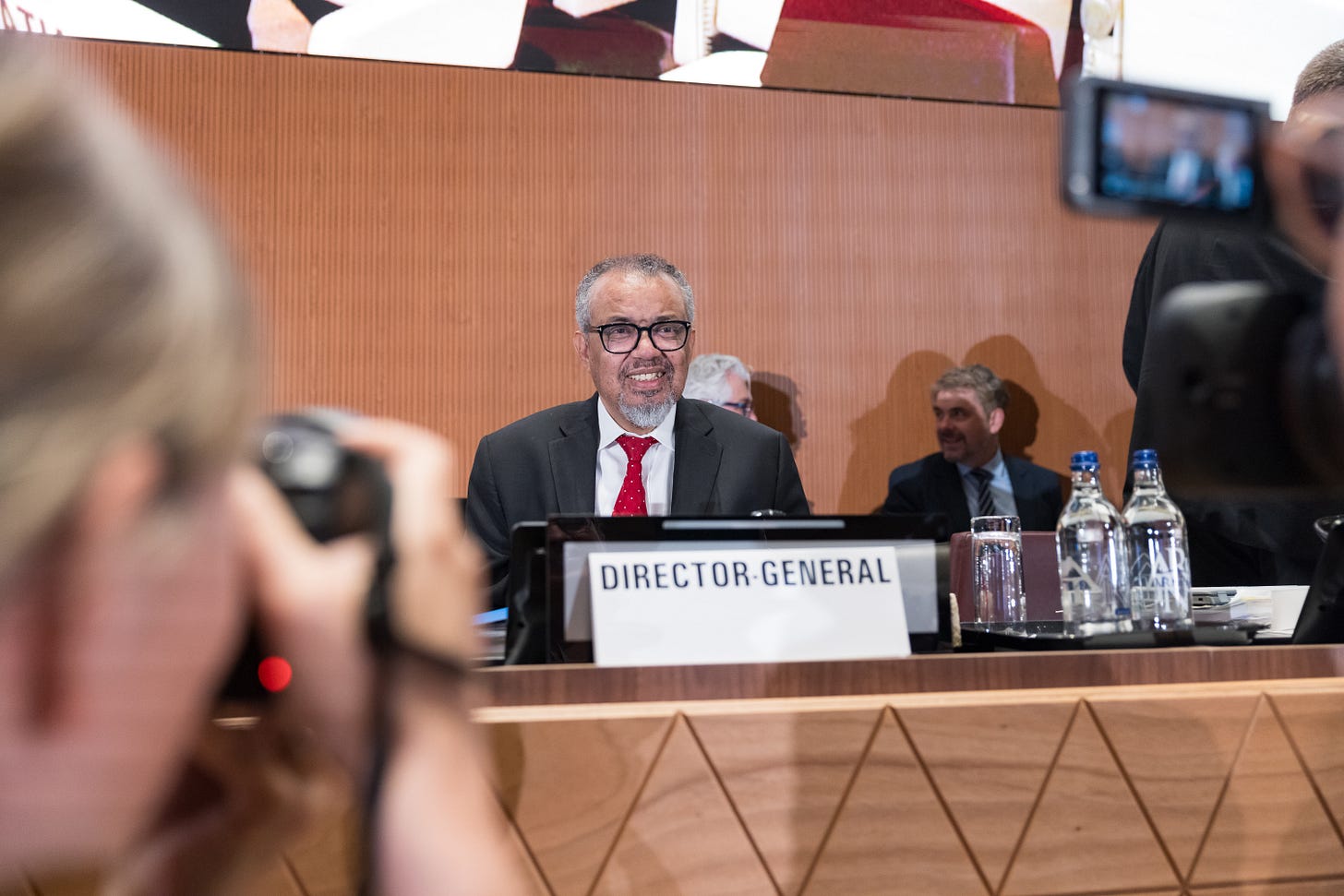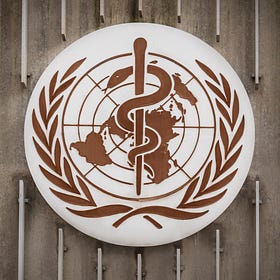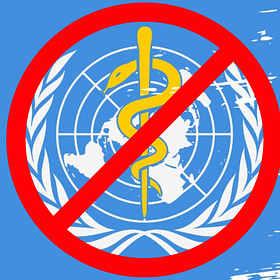WHO Pandemic Agreement formally adopted by member states
The Agreement is yet to be ratified, and won't be implemented for at least another year

After three years of negotiations, the World Health Organisation’s (WHO) Pandemic Agreement to strengthen global pandemic preparedness and response was finally adopted by member states on Tuesday at the 78th World Health Assembly (WHA) in Geneva.
The adoption by consensus followed Monday’s approval of the international Treaty by vote (124 in favour, 0 objections, 11 abstentions).
The United States (US), having announced its intended withdrawal from the WHO, was absent from the proceedings.
WHO Director-General Dr Tedros Adhanom Ghebreyesus said that “the world is safer today” due to the adoption of the Agreement, which he characterised as “a victory for public health, science and multilateral action.”
“It will ensure we, collectively, can better protect the world from future pandemic threats.
“It is also a recognition by the international community that our citizens, societies and economies must not be left vulnerable to again suffer losses like those endured during COVID-19.”
While the adoption of the Pandemic Agreement moves things forward, implementation will not be realised for at least a year or more, as member states are yet to finalise a Pathogen Access and Benefit Sharing (PABS) annex, which can be adopted at the next WHA in May 2026 at the earliest.
Once the PABS has been adopted, the binding Agreement must be ratified by 60 member states to come into full effect.
The controversial Agreement is one of two interoperable WHO pandemic reforms which promise to boost global collaboration, but which have been criticised for posing a threat to national sovereignty and directing vast resources away from more pressing global health needs.
Ironically, though Covid was the nominal impetus for driving this Agreement forward, no part of the text mentions or safeguards against government-funded gain-of-function research, which is widely recognised - including by intelligence agencies in the UK, Germany and the US - to be the most likely cause of the pandemic the world just lived through.
An earlier draft clause addressing gain-of-function research, “including accidental laboratory leakages of disease-causing agents” did not make it into the final version of the Agreement.

Instead, the Agreement (interchangeably called the Pandemic Treaty) focuses heavily on building systems to constantly surveil for and detect emerging pathogens to enable swift global coordination, including the development and distribution of medical countermeasures to ensure equity (i.e.: access to pharmaceutical products).
"If we'd been faster last time with the vaccines, we would have saved over eight million lives. That's a huge, huge benefit," said chair of the Coalition of Epidemic Preparedness Innovations (CEPI) Jane Halton on ABC today, weighing in on the “breakthrough” Treaty.
Yet, “We have not had a major outbreak in over 100 years that is in the category of natural outbreaks that the pandemic agenda is designed for,” public health physician and former WHO medical officer Dr David Bell told me earlier this year, referring to the pre-antibiotic era Spanish flu.
Through his work with the multidisciplinary REPPARE group convened by the University of Leeds, Dr Bell’s recent work highlights the exaggerated presentation of pandemic risk by the WHO, which is not supported by the available evidence.
This has not perturbed member states from pledging their commitment to the Treaty and its complementary International Health Regulations (IHRs) amendments (2024), the latter of which will come into effect if member states do not formally reject them by July of this year.
This commitment includes an increase of 20% in member state contributions towards the WHO’s 2026-2027 budget of US $4.2 billion ($2.1 billion per year).
The development of the Pandemic Agreement alone has already cost an estimated US $201 million, with annual costs post-implementation estimated to run at approximately $32 billion. This is just shy of the estimated $37 billion per year that it would cost to eliminate world hunger by 2030.
While most world governments are ramping up their rhetorical and financial support for the pandemic preparedness industry led by the WHO, there are pockets of resistance.
Argentina has joined the US in announcing its intention to withdraw from the WHO, and 11 countries, including Slovakia, Italy, and Poland, abstained from the vote to approve the Pandemic Agreement.
While Australian officials have thrown their full weight behind the adoption of the Treaty, a growing movement of nearly two million concerned citizens is coalescing in opposition under the banner of the Aligned Council of Australia.
Last year, a group of Australian politicians pressed the Prime Minister to reject the reforms on the basis that they posed “a significant threat to Australia’s autonomy and independence on the global stage,” a threat that the WHO flatly denies, although this denial is a matter of semantics.
The Treaty itself does not afford the WHO or the Director-General the authority to “direct, order, alter or otherwise prescribe the national and/or domestic law,” or to compel countries to implement measures such as travel bans or vaccine mandates, however the complementary IHRs do.
This is why it’s important to understand that the pandemic reforms are intended to operate in conjunction with each other.
As stated in Article 24.2 of the newly adopted Pandemic Agreement, “The Parties recognize that the WHO Pandemic Agreement and International Health Regulations (2005) [soon to be updated to IHR amendments 2024] and other relevant international agreements should be interpreted so as to be compatible."
Meanwhile, US Health and Human Services Secretary Robert F. Kennedy Jnr. took the opportunity this week to affirm the US’s decision to leave the WHO.
“Like many legacy institutions, the WHO has become mired in bureaucratic bloat, entrenched paradigms, conflicts of interest, and international power politics,” Kennedy wrote on X.
“Global cooperation on health is still critically important to [President Trump] and myself, but it isn’t working very well under the WHO as the failures of the COVID era demonstrate.
“I urge the world's health ministers and the WHO to take our withdrawal from the organization as a wake-up call.”
To support my work, share, subscribe, and/or make a one-off contribution to my Kofi account. Thanks!
Related Reading
US withdrawal from the WHO shines spotlight on need for reform
Amidst the whirlwind of executive orders issued by incoming US President Donald Trump last week was the news that the US intends to withdraw from the World Health Organisation (WHO).
Australia calls for urgent roadmap to finalise "binding" WHO pandemic treaty
Last week, it was reported that plans to adopt an international pandemic treaty had stalled, as countries failed to reach agreement on the final draft before the 77th World Health Assembly (WHA), which started in Geneva on Monday...
Australian parliamentarians push Prime Minister to reject WHO reforms
Fourteen Australian Senators and MPs have written to Prime Minister Anthony Albanese urging his Government to reject impending WHO pandemic reforms, which are to be voted on by WHO Member States at the 77th World Health Assembly (WHA) at the end of this month.
Why Australians are saying no to the WHO
Who runs the world? The WHO will, if Australia and other Member States agree to several proposed reforms. This is the view of a growing chorus who warn that Australia risks losing its sovereignty over public health decision-making to the WHO, without necessarily even realising it…






Where are the Liberals/Nationals on this.
I don't recall any opposition the the "Opposition" last year.
Certainly none now.
The gleeful enthusiasm exhibited by Penny Wong in signing over our health rights to the WHO is another victory for collectivism/ authoritarianism against individual freedom.
Marxism at work.
Another brilliant piece by you Rebekah. It is an art to take the complex, summarize it and make it understandable for the ordinary citizen, such as myself. Thank you for your time and dedication.🙏💐👑
How do we charge up our PM and Federal Govt. to find the courage, the integrity, to stand up for Australians? Is it merely lack of courage or are there financial reasons that motivate our leaders to abandon integrity? I wish I knew. Anyone else got the answer?